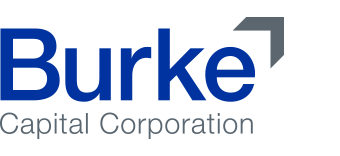Bananas*
Woody Allen may have said “80% of success is just showing up,” but one thing we know for sure is that when we show up at a distressed company, things happen. BCC partner Mike Ong frequently says: “It’s amazing how much we learn just by being physically on location.” This may be partly due to our ability to win people’s trust and partly due to our experiencing the general buzz of the office.
On day one of a recent project, we were given the party line — told that everything was fine, the business was profitable, and the balance sheet solid. Day by day, the story changed, and by the end of the week we determined the business was losing money and the balance sheet was seriously upside down. Also, the reported collateral assets had dropped by $3 million without explanation. The bank put the client in the workout group and needed to know what was happening — ASAP.
By being on location, we also observed weakness in the accounting department, and we built trust with key employees. The information we’d been given was now more nuanced. For instance, we learned there was a large backlog, but that it may not be very profitable.
How do we manage through these kinds of difficulties to fix the company and get the bank secured? We begin by focusing on cash — the lifeblood of any business. We examine the cash ins and outs for the prior 90 days and combine this information with an analysis of the company’s immediate cash hot list. This allows us to determine where the major problems are and what resources are available to address them.
“Blood! That should be on the inside!”
If there is a shortfall at this point, we need to determine what surplus assets are available for possible sale, what operating costs can be cut immediately, and what obligations can be deferred without affecting the company’s critical operating needs. After two weeks onsite, we get a lot more comfortable about forecasting the cash situation.
To make an accurate 90-day cash forecast, we use the AR and AP agings and payroll levels, and factor in other key operating expenses such as rent and utilities. We interview key employees to get backlog information and learn about other critical issues. We segregate those expenses vital to critical operations from expenses that are more discretionary. An example of a discretionary expense might be payments on the owner’s boat or on notes payable to shareholders. In any kind of a workout situation, these become a low priority.
Next, let’s discuss financial statements. At the beginning of an engagement, we can sometimes appear casual about the need to produce accurate historical financial statements. Here’s why. We assume they are inaccurate and we know it would take a lot of time and expense to correct them. We also know that as we review the accounts, we will find additional problem areas. When we do produce a financial statement, we want it to be accurate and reliable, so we’ll need to really take our time and thoroughly scrub down the numbers.
“Six months? I have a rented car!”
This process can run counter to a borrower’s normal behavior. Oftentimes, they want to show profitable operations and boost asset values to provide a nice picture for the creditors. An important part of our job is to rebuild creditability with the outside world, so we need time to convince borrowers that coming in with super clean numbers is the best policy. Our argument for “trueing up” the financials is that the situation won’t get any worse with the creditors than it already is. Plus, they already know the company is having trouble paying its bills, so why not use this as an opportunity to present a true and accurate picture?
Lastly, another one of Mr. Ong’s gems is: “when we get into these turnaround situations I am often surprised at how much people on the outside don’t know about what is really going on at the business.” Again, sometimes you just need to be onsite to get the whole story. If this is not practical, then by all means, call Burke Capital. Experience: More than 100 years combined. Focus: Independent executive-level viewpoint. Results: 25 years of successful assignments.
*Quotes in italic are from the 1971 movie, “Bananas,” produced by United Artists.
Burke Capital Corporation’s team is three principals, three senior associates and dozens of affiliated professional service providers available through our Integrated Expert Network™.



